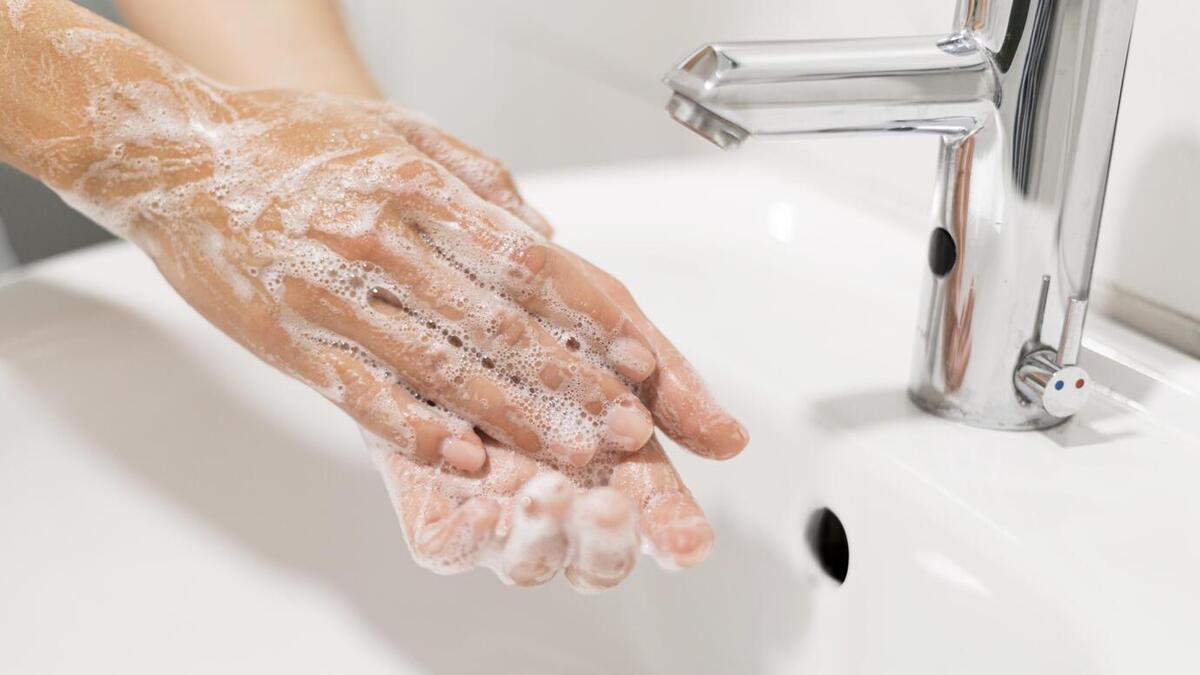Do you have an extreme fear of germs and contamination? Does that fear have a negative impact on your daily life and functioning, and does it cause you to go to great lengths to avoid pathogens or disinfect your body and your environment?
You might be dealing with a phobia known by a variety of names — mysophobia, bacillophobia, germophobia (or sometimes germaphobia), verminophobia, and bacteriophobia.

Let's be very clear here, though. I know exactly how I would have started an article on the topic of germaphobia pre-pandemic. I'd have pointed out, as research has shown, that only around one percent of all the microorganism known to science pose any threat to humans. Of those that aren't a danger, some are merely harmless, while others are actively helpful. Humans and microbes have mostly lived in harmony since the dawn of time, and our digestive systems, for instance, wouldn't work without them.
Since the time people first became aware of the existence of microorganisms, and discovered that some could make us sick, we've tried to steer clear of them to an increasing extent — in part fueled by the marketing campaigns of disinfectant manufacturers. This rise in the fear of germs, whether or not that fear is bad enough to warrant a psychological diagnosis, has been tied to rising rates of immune system conditions ranging from diabetes to irritable bowel syndrome.
Let's start again, then. What does it really mean to have germophobia in a world suffering through an active global pandemic? What are the signs that you have mysophobia now? If you really do live with an extreme fear of microbobes, what can you do to treat that?
What Is Mysophobia? What Are the Diagnostic Criteria?
Mysophobia, perhaps more commonly called germophobia, is an extreme fear of germs and contamination that persists for longer than six months and has a negative impact on your daily functioning.
A myriad of different irrational and extreme fears negatively impact countless people's lives. If each one were to have its own diagnosis, the "psychology Bible" (the Diagnostic and Statistical Manual of Mental Disorders, published by the American Psychological Association) would be even longer than it already is.
The signs that you have a specific phobia, and which will cause a psychologist, psychiatrist, or other clinician to diagnose you with one are:
- You experience severe distress when you are confronted with the object of your phobia, or even when you simply think about it.
- You go to great lengths to avoid situation, creature, or thing you are frightened of, and should you encounter it, you may experience physical symptoms such as heart palpitations, painting, gasping for breath, and panic attacks.
- The fear you experience is excessive in the context of your cultural environment, and disproportionate to the threat the situation, creature, or object poses.
- Your fear persists of at least six months
- The phobia has a tangible negative impact on your life.
If you suffer from mysophobia, you may:
- Wash your hands overly frequently or for excessively long periods of time.
- Stay away from locations that you fear have an unusually high amount of germs. Some people may avoid soil, while others are scared of public restrooms, and yet others fear nearly any situation — because microbes are everywhere.
- Spend a lot of time cleaning, disinfecting, and sanitizing your environment.
- Be scared of physical contact with people.
- Refuse to share any of your personal belongings for fear that they might become contaminated.
- Spend a lot of time thinking about the fear of becoming ill.
How Might COVID Impact the Diagnosis of Mysophobia?
As the BBC's Peter Goffin pointed out in his article titled OCD: I spent 20 years preparing for the coronavirus pandemic, the very traits and behaviors that were pathologized not too long ago now simply fall under public health guidelines. In today's world, it is hard to wash your hands too much, or to spend an excessive amount of time cleaning and disinfecting.
Germophobia is different than, for instance, a fear of spiders — because it's easy to figure out which house spiders are actually harmless, rendering a fear of them irrational. You never, on the other hand, know whether that trip to the grocery store could actually land you in hospital.
The questions you want to ask yourself, then, is whether your fear is only related to potentially lethal viruses, or you are also scared of microbes in general, like in your garden. Do you mask up, practice social distancing, wash your hands thoroughly, and relax? Or do you spend 30 minutes, rather than the recommended 20 seconds, washing your hands — even if you haven't just been somewhere where a lot of people congregate?
The answer to your question, ultimately, lies in a psychologist's office. You can get help either way. Whether the pandemic has given you (maybe well-founded, especially if you are vulnerable or someone you live with is) anxiety or you suffer from mysophobia, a therapist can help you cope.
If you do have mysophobia, exposure therapy and cognitive behavioral therapy remain the go-to treatment options. In this world, however, nobody will suggest that you feel your way around your local shopping mall and then grab a bite to eat without washing your hands.


Your thoughts on this